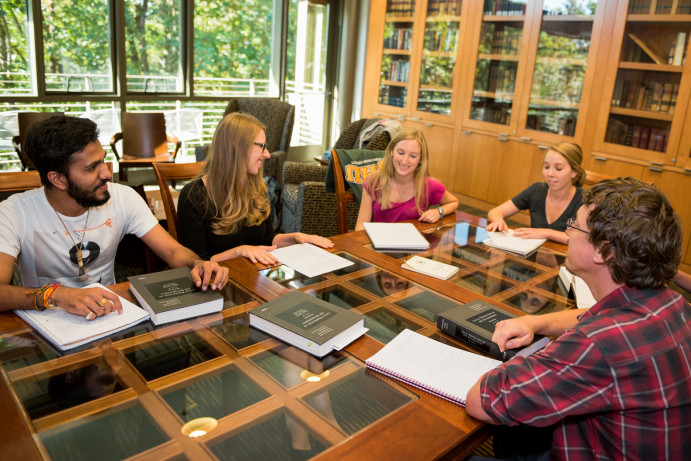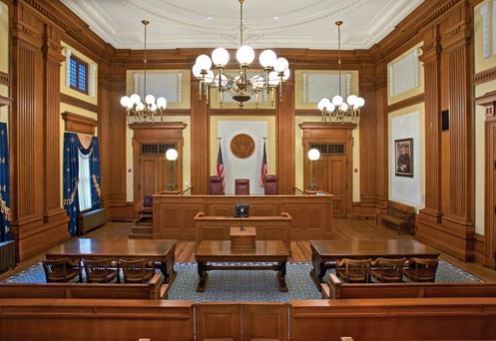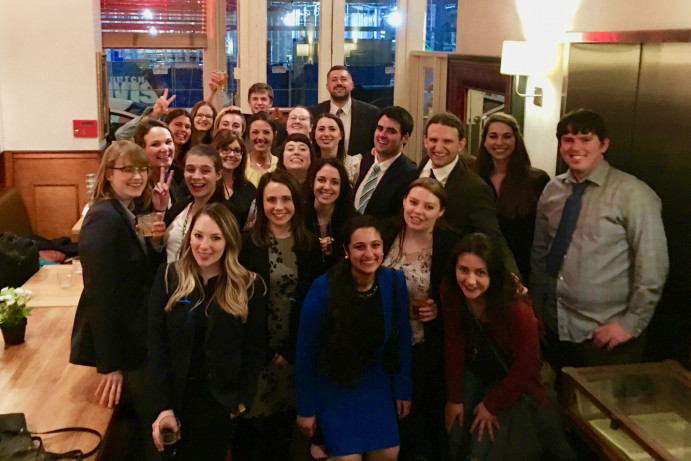Lawyering Program - Law School - Lewis & Clark
Lawyering I & II and Upper Division Courses
Overview
Lewis & Clark Law School emphasizes analysis and writing, allocating 6 credit hours for Lawyering I & II. Our first year courses focus on objective and persuasive legal writing, respectively. In fall semester, you will learn how to predict the most likely outcome to a legal question. You will gain basic knowledge of research strategies and techniques. You will understand the components of a single legal argument and how to organize multiple legal arguments within a document. After learning how to synthesize, organize, and write about the law, you will draft an objective memorandum of law for a supervising attorney.
In the second semester, the focus shifts to persuasive writing. You will learn how to write for a different audience—a court. The major assignments will be an appellate brief and preparing an oral argument from that brief. Each April, first-year students prepare and present oral arguments before panels of local attorneys and judges at the Multnomah County Courthouse.
Small Classes and Individual Attention
Lawyering I & II will give you individual attention and in-depth feedback. Small Lawyering classes—typically from 20-24 students—provide more opportunity to engage with professors and peers. Each first year student has rich opportunities for feedback through numerous one-on-one individual conferences with Lawyering professors, intensive peer-review sessions, and in-class workshops on writing and citation.
Upper-level students serving as Teaching Fellows provide another great resource for guidance or feedback. Teaching Fellows review and critique student work, mentor students, and conduct workshops on topics like taking exams, research, or citation basics. Fellows are also available to conference with students.

Upper Division Classes
Our program offers many upper division classes and seminars including Advanced Legal Writing, Contract Drafting, Legal Persuasion and Rhetoric, Race and the Law, Statutory Interpretation, and topics in Criminal Justice and Public Interest Law. Seminars are small, usually ranging from 8-15 students, so that each student can get individual attention and feedback.

Oregon Supreme Court Visit
Each year, the Oregon Supreme Court hears oral arguments on our campus. As a student, you will get to see appellate briefs and oral arguments up close. You will also get to interact with justices from our state’s highest court.

Oral Arguments at the Ninth Circuit
In spring semester as you begin to prepare to argue your issue for 1L Moot Court, consider attending oral arguments at the Ninth Circuit. Watching other advocates can help you improve your own skills! Check the court’s schedule here to find out when you can attend.

Lawyering is located in Wood Hall on the Law Campus.
MSC: 51
email tvj@lclark.edu
voice 503-768-6637
fax 503-768-6671
Director Steve Johansen
Lawyering
Lewis & Clark Law School
10101 S. Terwilliger Boulevard MSC 51
Portland OR 97219